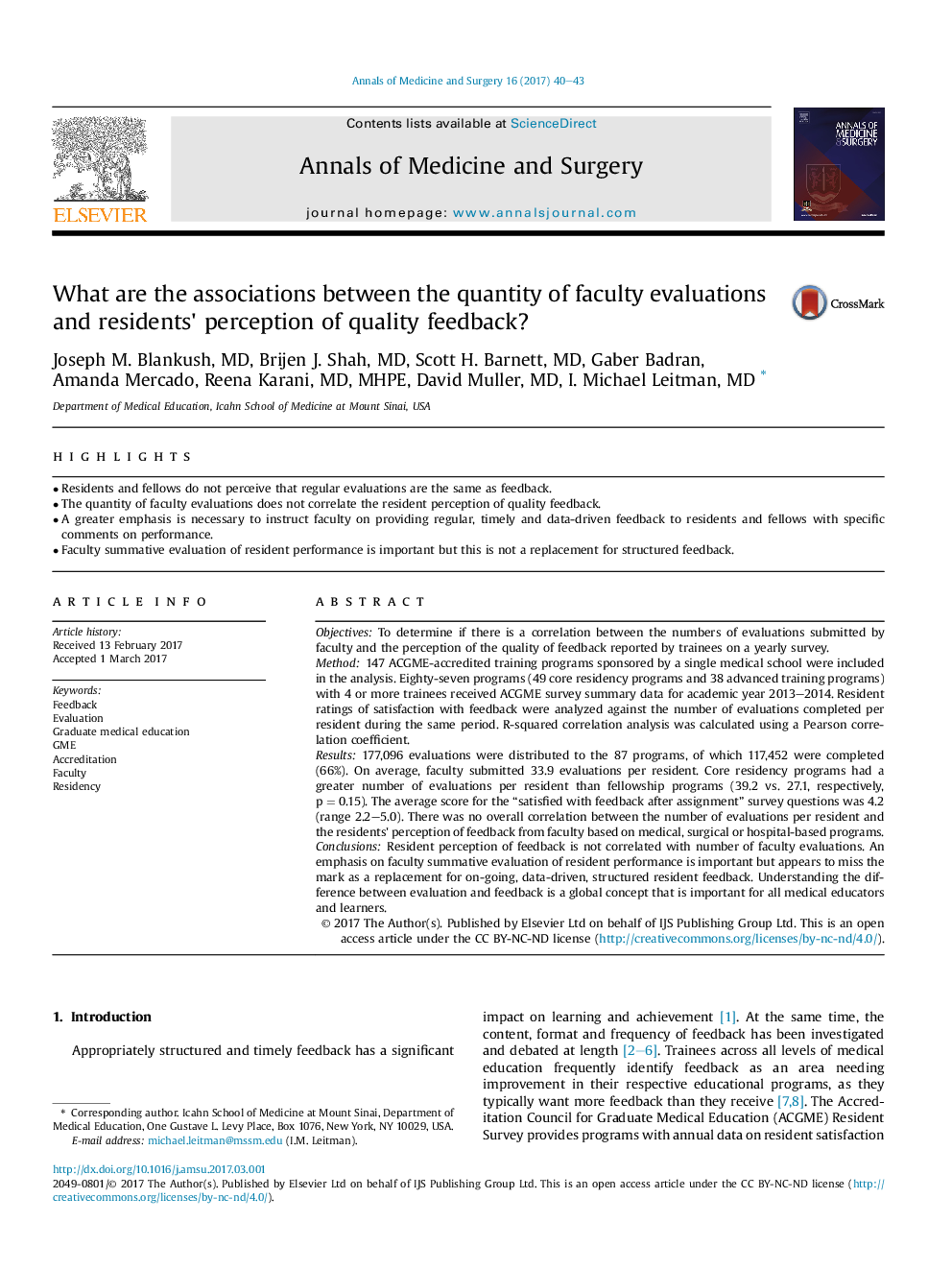| Article ID | Journal | Published Year | Pages | File Type |
|---|---|---|---|---|
| 5723091 | Annals of Medicine and Surgery | 2017 | 4 Pages |
â¢Residents and fellows do not perceive that regular evaluations are the same as feedback.â¢The quantity of faculty evaluations does not correlate the resident perception of quality feedback.â¢A greater emphasis is necessary to instruct faculty on providing regular, timely and data-driven feedback to residents and fellows with specific comments on performance.â¢Faculty summative evaluation of resident performance is important but this is not a replacement for structured feedback.
ObjectivesTo determine if there is a correlation between the numbers of evaluations submitted by faculty and the perception of the quality of feedback reported by trainees on a yearly survey.Method147 ACGME-accredited training programs sponsored by a single medical school were included in the analysis. Eighty-seven programs (49 core residency programs and 38 advanced training programs) with 4 or more trainees received ACGME survey summary data for academic year 2013-2014. Resident ratings of satisfaction with feedback were analyzed against the number of evaluations completed per resident during the same period. R-squared correlation analysis was calculated using a Pearson correlation coefficient.Results177,096 evaluations were distributed to the 87 programs, of which 117,452 were completed (66%). On average, faculty submitted 33.9 evaluations per resident. Core residency programs had a greater number of evaluations per resident than fellowship programs (39.2 vs. 27.1, respectively, p = 0.15). The average score for the “satisfied with feedback after assignment” survey questions was 4.2 (range 2.2-5.0). There was no overall correlation between the number of evaluations per resident and the residents' perception of feedback from faculty based on medical, surgical or hospital-based programs.ConclusionsResident perception of feedback is not correlated with number of faculty evaluations. An emphasis on faculty summative evaluation of resident performance is important but appears to miss the mark as a replacement for on-going, data-driven, structured resident feedback. Understanding the difference between evaluation and feedback is a global concept that is important for all medical educators and learners.
